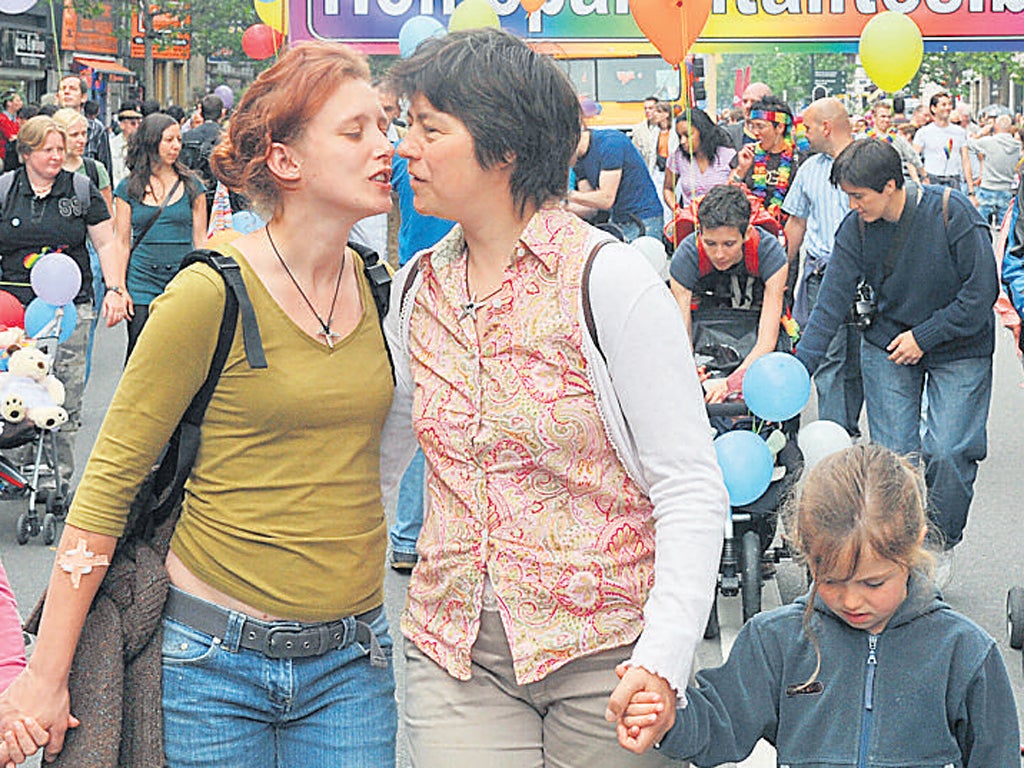Gay rights: a lot achieved; much still to be done
Equality for LGBT community has been slow in coming. By Jerome Taylor and Liam O'Brien

When Barack Obama came out in support of gay marriage earlier this month, there were many who saw it as a turning point in the history of equal rights. Just as John F Kennedy finally adopted the cause of the civil rights movement, the gay rights lobby can claim the White House is officially on side (even if Mr Obama may have been privately for a long time).
Legislative change is what finally frees a victimised group from state-sanctioned discrimination. But laws tend only to be altered once a significant bulk of the population has come to accept, tolerate and even celebrate a community's differences. Which is why today's International Day Against Homophobia and Transphobia is a key part of keeping the gay rights flame alive. All over the world people will make thousands of small actions which, taken as a whole, remind us of the victories that have been won and the enormous amount of work that still needs to be done.
"[The day] brings to attention just how much homophobia and transphobia there is in the world," says Lance Price, of The Kaleidoscope Trust, which campaigns on lesbian, gay, bisexual and transgender (LGBT) issues. "Huge strides have been made in the UK and other countries, but elsewhere in the world the challenges are massive. It's easy to forget when we enjoy our freedoms."
Often it seems that international days to promote certain causes are picked arbitrarily, but there is a good reason why today represents the fight against sexual prejudice. It was on 17 May 1990 that the World Health Organisation finally removed homosexuality from its "International Classification of Diseases" list. The world has come a long way since then.
Civil unions, gay marriages, the repeal of discriminatory laws and punishments for homosexuality have gathered pace across much of the world. Even in the States, where evangelical Christianity clamours to dominate the debate over sexuality, the acceptance of gay relationships has undergone a radical transformation. Ten years ago an average of just 45 per cent of Americans supported gay marriage. Now the figure has morphed into an average majority of 56 per cent.
But the picture is not all pink. There are still at least five countries which retain the death penalty for homosexuality, while almost half of Africa's 52 nations impose some sort of criminal punishment. "We've come so far and we have a responsibility to try to challenge these things elsewhere," says Matthew Todd of Attitude magazine. "It's a simple human rights issue."
Subscribe to Independent Premium to bookmark this article
Want to bookmark your favourite articles and stories to read or reference later? Start your Independent Premium subscription today.

Join our commenting forum
Join thought-provoking conversations, follow other Independent readers and see their replies